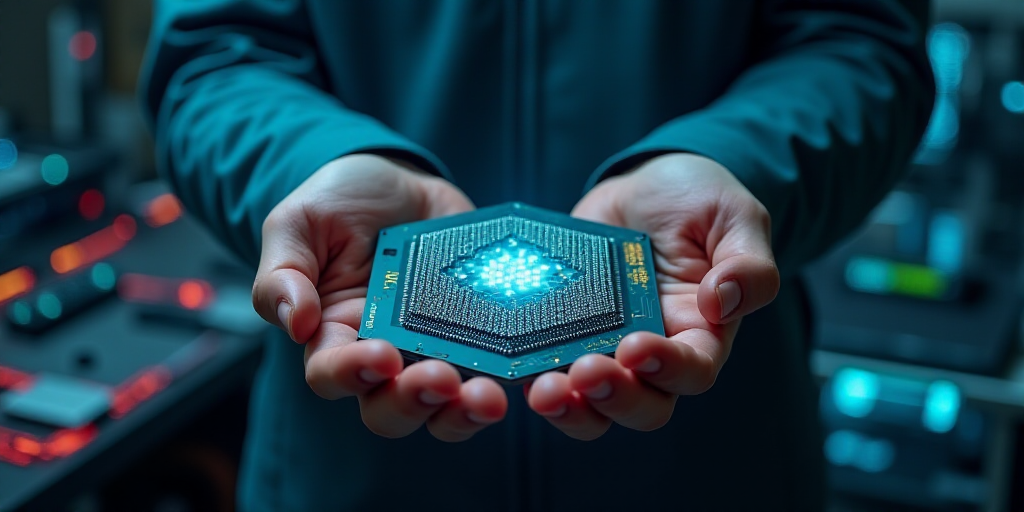From Obscurity to Global Influence
Just three years ago, Jensen Huang was largely unknown to the general public. However, with the rise of generative artificial intelligence (AI), he has become one of the most visible and powerful figures in the world of tech, leading Nvidia, a US semiconductor giant.
In the past two years, Huang’s appearances have turned into global events, filling auditoriums with over 10,000 attendees while Nvidia’s products revolutionize AI boundaries. His newfound fame is attributed to the success of Nvidia’s chips, known as graphics processing units (GPUs), which are crucial for developing generative AI technologies like ChatGPT.
Nvidia’s Meteoric Rise
The insatiable demand for Nvidia’s GPUs, each selling for tens of millions of dollars, has catapulted the California-based chip manufacturer to a stock market valuation exceeding $4 trillion, making it the first company to surpass this milestone.
This meteoric rise has increased Huang’s personal fortune to $150 billion, ranking him among the world’s wealthiest individuals, thanks to his approximate 3.5% stake in the company he founded three decades ago with two friends in a Silicon Valley restaurant.
Influencing Global Policies
Recently, Huang convinced former President Donald Trump to lift restrictions on certain GPU exports to China, despite China’s ongoing battle with the US for AI supremacy. According to Yale governance professor Jeffrey Sonnenfeld, it was a “brilliant decision” as Huang explained to Trump that it would benefit the US without appearing to strengthen China’s military capabilities.
Early Life and Career
Born in Taipei in 1963, Jensen Huang (originally named Jen-Hsun) embodies the American success story.
At nine, he was sent to a boarding school in a small Kentucky town with his brother. His uncle recommended the school to their Taiwanese parents, believing it was prestigious when it was actually a school for troubled youth. Huang lived there but attended a nearby public school alongside the children of tobacco farmers. Due to his limited English skills, he experienced bullying and had to clean restrooms for two challenging years that ultimately shaped him.
“We worked hard, studied a lot, and the kids were tough,” Huang recounted in an interview with NPR. “But I enjoyed the time I spent there,” he added.
Unwavering Optimist
Returning to his parents’ home in Oregon, Huang graduated from college at 20 and joined AMD and LSI Logic, semiconductor companies where he designed chips—his true passion.
However, Huang wanted to push boundaries and founded Nvidia in 1993 to “tackle problems regular computers can’t handle,” using powerful semiconductors for 3D graphics, as he explained in the “No Priors” podcast.
Nvidia created its first GPU in 1999, driving the convergence of video games, data centers, cloud computing, and now generative AI.
Huang, always donning a black t-shirt and leather jacket with the Nvidia logo tattoo, loves sports cars. Yet, it’s his relentless optimism, discreet personality, and lack of political alignment that distinguish him from figures like Elon Musk and Mark Zuckerberg. Unlike them, Huang skipped Trump’s inauguration.
“He downplays his own aura, making the technology—not himself—the star,” Sonnenfeld noted. He believes Huang could be “the most respected of all current tech titans.”
Paradoxical Leadership
Whenever Huang visits Taiwan, he’s greeted like a celebrity, with dozens of fans lining up for autographs and journalists trailing him to his barbershop and favorite night market.
“He’s built this phenomenon through his charisma,” said Wayne Lin from market research institute Witology. “A person like him must be very busy, with a packed schedule of meetings with top executives. Yet, he remembers to eat street food when he’s in Taiwan,” Lin added.
Nvidia maintains a strict image of Huang, avoiding dramatization. However, a former high-ranking Nvidia employee painted a more nuanced picture.
- Protective yet Demanding: This individual described Huang as “very paradoxical,” someone who fiercely protects his employees but can also “destroy people” within Nvidia’s executive circle for significant errors or poor decisions.






